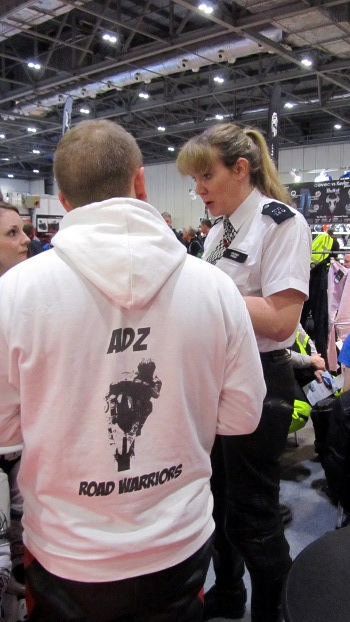London's plan to make the roads safer for motorcyclists
New developments published in February 2014
Motorcycling in busy cities makes sense on many levels. In a city as crowded as London for example where the traffic is extremely heavy, especially during the rush hour, then a motorcycle is an excellent choice to get you from A to B. On two wheels you can filter through the traffic and by-pass the queue thus significantly cutting down your journey time. Motorcycles are also cheaper to run so save money on the daily commute and produce fewer emissions so can reduce the amount of pollution in the capital. As a recent study in Belgium showed as well – if as little as 10% of journeys were made on a motorcycle instead of in a car then traffic flow would be increased and the rush hour reduced by as much as 40 minutes. Imagine how much quicker everyone’s journeys would be if 50% of the traffic was motorcycles
In a move perhaps aimed at encouraging more motorcycling in London, Transport for London and Boris the Mayor have recently unveiled plans to improve safety for motorcyclists and reduce the number of motorcyclists killed or seriously injured on the roads of the capital by 40% by 2020.
They plan to go about this by implementing an action plan, published in February 2014, which includes six commitments which are as follows:
1.To lead the way in achieving a 40 per cent reduction in the number
of people killed or seriously injured on the Capital’s roads by 2020 –
with a longer term ambition of freeing London’s roads from death and
serious injury
2.To prioritise the safety of the most vulnerable groups – pedestrians,
cyclists and motorcyclists – which make up 80 per cent of serious
and fatal collisions
3.To provide substantial funding for road safety, invested in the most
effective and innovative schemes
4.To increase efforts with the police, boroughs and enforcement
agencies in tackling illegal, dangerous and careless road user behaviour
that puts people at risk
5.To campaign for changes in national and EU law to make roads,
vehicles and drivers safer
6.To work in partnership with boroughs and London’s road safety
stakeholders to spread best practice and share data and information
London has been trying to reduce motorcycle casualties for many years . So far measures brought in to try to address the motorcycle casualty rate have managed to halve the number of casualties in the last ten years so they have been successful as far as they go, but more still needs to be done. This is really the motivation for the new Motorcycle Action Plan which Transport for London and representatives of the Motorcycle Industry have put together. The starting point has been an analysis of the challenges to London motorcyclists in order to work out exactly what they are up against. This has led to a detailed set of actions to help solve the everyday problems motorcyclists face.
Some of the key points are as follows:
* Increased police enforcement of traffic offences in an attempt to curtail dangerous and irresponsible driving.
* Offender retraining rather then prosecution will be prioritised for motorcyclists and a guidance on riding in heavy traffic component may be introduced to the CBT
* TFL will promote the use of personal protection equipment PPE which can help protect riders if they are involved in an accident.
* New safety campaigns will be brought in to change road users behaviour which puts motorcyclists at risk, such as not making the proper visual checks.
* A new motorcycle courier and delivery code will be launched by TFL to help companies to provide better training and safety equipment for riders and help them with improving riding behaviour among their employees.
The Mayor Boris Johnson said of the new plan:
“This plan clearly sets out our commitment to make London’s roads as safe as possible for motorcyclists, many of whom play a key role in keeping businesses across our city moving. It’s a very wide -ranging package of measures that looks at motorcycle safety in the round from education and awareness to better enforcement and innovations in technology and design too.”
Craig Carey-Clinch of the Motorcycle Industry Association said:
“Motorcycles are an important component in London’s transport system and riders have a right to expect a safer road environment. The action plan marks a valuable step in bringing safety initiatives together under a single framework. We welcome TFLs commitment to motorcycle safety and look forward to working with the TFL team as the action plan is delivered and also further developing the role of motorcycling under a holistic safety and transport policy.”
In June 2013, the Mayor and Transport for London published Safe Streets for London: a plan to further reduce the number of people killed or seriously injured in London by 40 per cent by 2020:
http://beta.tfl.gov.uk/cdn/static/cms/documents/safe-streets-for-london.pdf
So on balance it looks as though things are looking good for motorcyclists in London and some of the problems they face are being taken seriously and addressed. Let's hope that if these measures are tested and found to be successful in London then they will be rolled out across the rest of the country.
What do you think of the plan so far? Any thoughts email us at
[email protected] or comment on Twitter or Facebook



